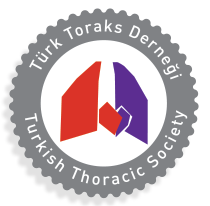Abstract
Objective:
A multicenter trial was designed to validate the “Assessment Tools for Asthma” (ATA) questionnaire, a newly developed questionnaire, which evaluates both asthma control and risk factors associated with control in the one instrument.
Methods:
This cross-sectional study involved 810 cases from 14 clinics in 9 Turkish cities. The ATA questionnaire and Asthma Control Test (ACT) were administered. Visual analog scale (VAS) was used to evaluate the control status of 100 randomized cases. ATA is a physician-administered questionnaire including eight items. The ATA comprises two sections: the ATA1 querying symptomatic control criteria and the remaining section querying flare-up of asthma, control of comorbidities, treatment adherence, and inhaler technique.
Results:
The mean scores for ATA1, ATA total, VAS, and ACT were 24.7±14.8, 53.8±19, 7.1±3, and 18.8±5.5, respectively. According to the ATA questionnaire, among all patients, 34.3% had controlled, 18.8% had partly controlled, and 46.9% had uncontrolled asthma. Further, 16.6% patients had flareups between visits, 96.4% patients had uncontrolled comorbidity, 17% patients had irregular asthma treatment, and only 8.4% patients used the incorrect inhaler technique. The ATA questionnaire showed internal consistency (Cronbach’s alpha coefficient = 0.683). ACT, ATA1, and two specialists’ evaluations using VAS were highly correlated to ATA total scores; the Spearman correlation coefficient (r) values were 0.776, 0.783, and 0.909, and p values were p<.001, p<.001, and p<.001, respectively. According to ROC (Receiver Operating Characteristic) analysis, the cut-off value of ATA was 50 (sensitivity=84.4%, specificity=82.40%).
Conclusions:
The validated ATA questionnaire may be a practical tool for physicians in asthma management.
Cite this article as:
Gemicioğlu B, Mungan D, Bavbek S, et al. Validity and Reliability of the Assessment Tool for Asthma (ATA) Questionnaire: the ATA Study. Turk Thorac J 2019; DOI: Turk Thorac J 2020; 21(2): 93-9.



